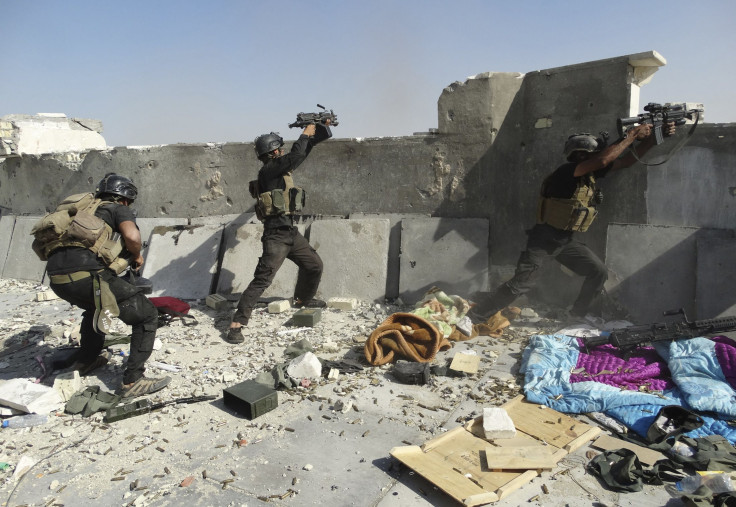US Sends New Advisers To Iraq, But Front-Line Fighters, Independent Analysts Are Skeptical

The U.S. decision to send an additional 450 military advisers to western Iraq to support Iraqis fighting the Islamic State group (ISIS) has left those Iraqi fighters, as well as independent analysts, unimpressed. Those advisers, the U.S. Defense Department said Wednesday, are joining thousands of others already helping the Iraqi military train and arm volunteers from Anbar province to retake land -- including the provincial capital of Ramadi -- lost recently to ISIS. But front-line fighters say the new advisers, while welcome, can't address an acute lack of coordination among the three main forces opposed to ISIS, the Iraqi security forces, Shiite militias and Sunni tribesmen.
In interviews with International Business Times, Sunni tribesmen in Anbar province involved in a new training program at the Habbaniya base near Ramadi said there are fundamental problems with the fight against the Islamic State group that “no amount of U.S. military advisers” can change. (The Sunni fighters, who completed training by the U.S. advisers last week, did not want to reveal their names for security reasons.)
The program aims to train Sunnis familiar with the terrain and politics of Anbar, which is dominated by wealthy tribesmen, some of whom directly support ISIS with cash and weapons and have pledged allegiance to the jihadi group.
“In areas that are Sunni, ISIS does very well,” said Andrew Tabler, an ISIS expert at the Washington Institute for Near East Policy. “In other, more mixed areas, it has a harder time." Tabler said if the U.S. and Iraq do not involve Sunnis in the fight against ISIS it will "not do anything substantial."
The lack of coordination and communication among Anbar's anti-ISIS factions was part of the reason ISIS was able to take Ramadi easily, said fighters recently trained by U.S. advisers. Another part of the reason is the absence of another force that brings far more experience, Shiite militias whose presence helped route ISIS from Tikrit earlier this year. The Shiites, while involved in the fighting in Anbar, have taken a back seat in Anbar.
The Iraqi defense ministry is struggling to coordinate the various armed groups in the fight against ISIS while also trying to stop the cash and flow of weapons from wealthy Sunni tribesmen to the militant group. Overwhelmed by the sheer number of forces trying to help defeat ISIS, the Iraqi military is looking to the U.S. to come up with a new strategy that will involve those fighting with Baghdad’s armed forces, the Shiite volunteer forces funded largely by Iran as well as Sunnis in Anbar.
But, experts say, the U.S. advisers may not be able to fix that kind of a structural problem among the anti-ISIS factions.
Anthony Cordesman, a former adviser to the U.S. departments of State and Defense during the Iraq and Afghanistan wars, says the addition of the 450 U.S. military advisers does not address the overarching problems.
“No overall strategy has been announced for improving the Iraqi army or air force,” said Cordesman. “They are not announcing or dealing with any public strategy for pushing the Iraqis towards unity or finding some way of reducing ... problems between Sunni or Shiite or Arabs and Kurds.”
While some defense hawks want to see a large increase in U.S. forces in Iraq, Yinon Weiss, a 10-year veteran of the U.S. Special Forces with expertise in ground intelligence in Iraq, says adding large numbers of troops could actually destabilize the region in the short term and would go against the current White House strategy.
“I don't believe there is national support right now for an all-in strategy,” said Weiss “At this point, the most practical option is an attempt at containment. If ISIS can be contained, their access to resources can over time be reduced, and their ability to govern their own territory will be disrupted, thereby weakening them and creating windows of opportunity for their ultimate defeat.”
© Copyright IBTimes 2024. All rights reserved.




















